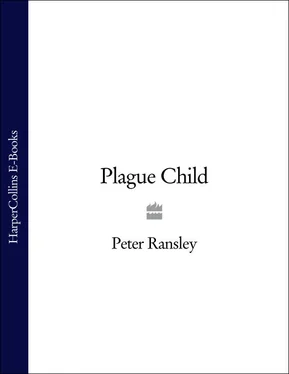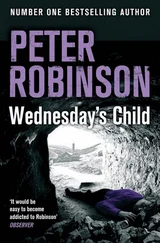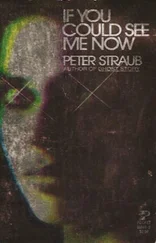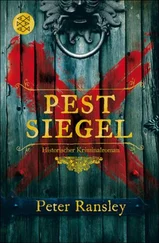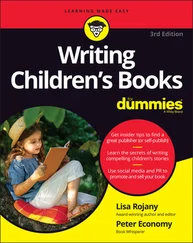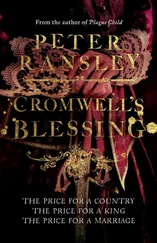Even I, for whom the words echoing round the chamber of the House meant as much as most of the Latin my tutor tried to drum into me, knew something extraordinary was happening. Mr Lenthall, the Speaker, had to keep calling order. There was a silence so deep my boots sounded like the crack of doom. My old enemy, the Serjeant, at the door of the chamber turned, but I slipped behind a pillar.
‘The Ayes have it!’ Mr Lenthall called.
What the Ayes had I neither knew nor cared, except that Mr Pym’s speech would soon be in my hand and I could go. There was a tremendous uproar, more shouting and banging of feet and cries for order, before Members came out, still arguing fiercely.
Mr Pym was with an MP of about forty, with a brooding, long-nosed face and an untidy beard. I knew him only from scowling me away if I scuttled too near his feet. Normally he made long-winded speeches about draining the fens, looking as if he had just ridden up from doing so. Now there was a look of almost religious exultation on his face as he came out of the chamber with Mr Pym.
‘If this had not been passed, John, I would have sold up everything and gone to Massachusetts.’
Pym smiled at the younger man, but as usual there was a look of caution on his exhausted face. ‘We haven’t got the new world here yet, Oliver. They’re already trying to wreck it.’
He looked towards another group, in the middle of which George Goring, handsome and wild-eyed, was gesticulating fiercely.
It? New world?
Goring shouted: ‘You cannot make such demands of the King!’
His hand went to his waist, and if swords had been allowed in the chamber, he would have drawn his. He moved towards John Pym, but he was already disappearing with others into a meeting room. I heard Goring mutter that there had been enough words and it was now too late for meetings.
Another group round Sir Simon D’Ewes, who in any debate found one side totally convincing until he heard the arguments of the other, were finding they had urgent business in the shires and were sending out servants to prepare the horses.
Various members strode about dictating to scriveners. Some, like Mr Ink, had portable writing tables strapped to their waists.
‘What’s happening?’ I asked.
At first he made no answer. He was writing a clear copy from notes which, I knew, came from Mr Pym, threaded through with spidery scribbles of his own. His quill dipped. The ink flew.
Then, scarcely pausing in his transcription he said: ‘The Grand . . . Remonstrance!’
Even in his haste, he uttered the words with a flourish, like that of a gauntlet being flung down.
‘The Grand – what? What does it mean?’
He flung his hands to his head in frustration, tried to continue, but had lost his train of thought. He turned on me. For a moment I thought he was going to throw his dripping quill at me. Then, although he had long made it plain he thought me a miserable, unintelligent wretch, his long gloomy face relented a little.
‘It is a plea to the King,’ he said, ‘from his humble servants to leave our reformed religion alone and not listen to malignant advisers –’
‘Like his Catholic Queen Henrietta?’ I broke in.
He clapped an ink-stained hand over my mouth and looked nervously around. But I thought that for the first time he looked approvingly at me.
‘And a plea to listen to our humble opinions, not to dismiss Parliament when he chooses and to take money from his humble servants by taxing everything in sight: bricks, salt, even the humble bar of soap we wash with.’
Since he looked as if he washed in ink and I scarcely washed at all in winter, avoiding the freezing pail in the yard, I thought soap unimportant and the whole Remonstrance thing sounded a good deal too humble for the King to care a jot about.
Perhaps that showed in my face. His face flushed. For the first time he looked as if he had blood, rather than ink in his veins.
‘But the plea is really to you,’ he said.
‘To me?’ I said, amazed.
‘To the people. This will change the world.’
This? What did he mean? Not taxing soap? I thought him a magician as his writing table bounced and the words in his head, now unknotted, flew on to the paper. He spoke as he wrote, the sonorous cadences of Mr Pym entering his voice and some of his phrases, such as ‘Parliament is as the soul of the Commonwealth . . .’ , echoing in my mind.
It was as if he had cast a magic spell over me. The spell was in the words drying in my hand. They would change the world. I believed it utterly. I would change myself. As I ran out into the dark night, I determined to be a reformed character, and not stop at the Pot Upside Down for a beer and a game of pass-dice with the other apprentices. Alehouses and dice were near the top of the list of the thousand things apprentices were forbidden to do.
But I must admit my pace slackened as I reached the alehouse. Although it was so late, excitement and rumours about the debate spilled out of the doors. One tankard, I persuaded myself, would help me run all the faster.
There was a stranger near the bar, a gentleman in a beaver hat and a fashionable short cloak, questioning regulars. I heard him say ‘red’. My ears are sharp, particularly for that word. My hair, red as fire and just as unruly, is a curse to me. My master could spot me in an alehouse however dim the light and thick the smoke. People thought I had Scottish blood, or even worse, Irish, and, since the papists were in rebellion over there, twitted me for being a spy. I had the hot temper supposed to go with the hair and got into several fights over it.
I caught the man in the beaver hat staring at me. He turned quickly away, to address a man I took to be his servant, who had the thick neck and shoulders of a bulldog, and a face pitted with smallpox.
Sometimes the Guild used the Watch to catch apprentices in alehouses. I suddenly remembered that I was a reformed character and had sworn never to go into an alehouse again. I wriggled my way through the crowd and out of the alehouse, gripping the precious words Mr Ink had given me tightly in my hand. I really believed that those words, although I did not understand them (perhaps because of that), had changed me for good.
As I ran, I imagined how being a reformed character would turn me into a good apprentice. I would become a Freeman of the City, marry Anne, in spite of my feet, have my own printing and book-seller’s shop by St Paul’s Churchyard and, after a few years, become Lord Mayor of London.
So I flew down the sweet street of dreams, so deep in them I was scarcely aware of the stench (ten times worse than that of the ordinary streets) of Smithfield Market. The stink hit my nostrils at the same moment as I realised someone or something was behind me.
I dived down a dark alley, my footsteps echoing. I stopped abruptly. Was that the echo, or someone’s footsteps stopping shortly after mine? I stuffed the precious papers in my pouch.
‘Who’s there?’
There was a shuffling whisper of a sound and I kicked out at the rat scuttering past my feet. I had been a fool to come this way. I should have gone the long way up the Old Bailey. There were vagrants here, come to fight the red kites and the ravens for what offal they could find. London, I knew, because it was on one of the pamphlets I sold, had grown bigger than Paris and so was now the biggest city in the world, attracting thousands of the poor and desperate who would kill me for the flat cap on my head.
Out of breath, I hurried into the market itself, clapping my hand to my nose. The air reeked of stale blood and urine. I jumped as ravens lumbered up from a yellow mess of intestines. The moon was up, casting long black shadows in the stalls into which the cattle were driven at dawn to be sold and slaughtered.
Читать дальше
